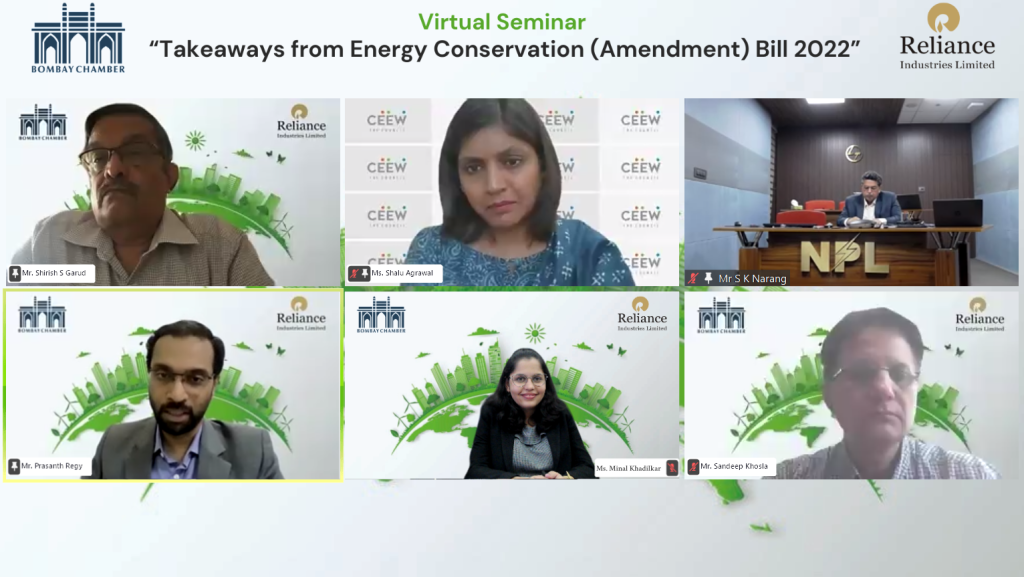The Energy Conservation Bill 2022, recently passed by the Lok Sabha, an amendment of the Energy Conservation Act 2001, aims to fasten the transition towards a low-carbon economy and strengthen the usage of non-fossil fuel energy sources within the heavy industries sector.
Keeping with its continuous work towards enhancing dialogue between the Government and industry players, the Bombay Chamber of Commerce and Industry, in partnership with Reliance Industries, organised a virtual seminar to discuss the Takeaways from Energy Conservation (Amendment) Bill 2022. Welcoming the audience, Mr Sandeep Khosla, Director General, Bombay Chamber, spoke about initiatives of Bombay Chamber under the Power & Infrastructure domain.
Ms Shalu Agrawal, Senior Programme Lead, CEEW, moderator of the panel discussion on ‘Key Takeaways from Energy Conservation Amendment Bill 2022,’ spoke about the background of the bill and key proposals, and briefed upon some of the pathbreaking provisions of the bill, such as how it is empowering the central government to specify energy consumption standards, a carbon credit trading scheme and energy conservation code for buildings. She highlighted the implications of these changes on the economy and how they will pave the way to achieve the target of a net zero economy by 2070.
Mr Prasanth Regy, Consultant (Energy), NITI Aayog discussed the implications of the carbon trading market and its pricing structure. He gave two perspectives to decide the framework of carbon pricing and recommended learning from the experiences of countries that have already implemented the policy, such as the EU, Canada and China, which has helped them reduce carbon emissions to a great extent with negligible cost to the economy.
Mr Shirish S Garud, Director, The Energy and Resources Institute (TERI) appreciated the revolutionary step of introducing the carbon trading market in India. He highlighted the issues affecting the energy sector in India and the challenges that may occur while implementing the policy, such as integration with the global market.
Mr Suresh Kumar Narang, CEO, Nabha Power, a wholly owned subsidiary of Larsen & Toubro, projected recent data which showed that India is heavily dependent upon fossil fuel even today for its energy needs. However, as per COP26 commitments, India is committed to cutting its emission to net zero by 2070. Mr Narang also addressed the present financial health of distribution agencies which is weak and is likely to be a concern in implementing the changes. He added that while implementing the policy and for the transition to succeed, a healthy ecosystem should be created by protecting the interest of each stakeholder and making it commercially viable.









